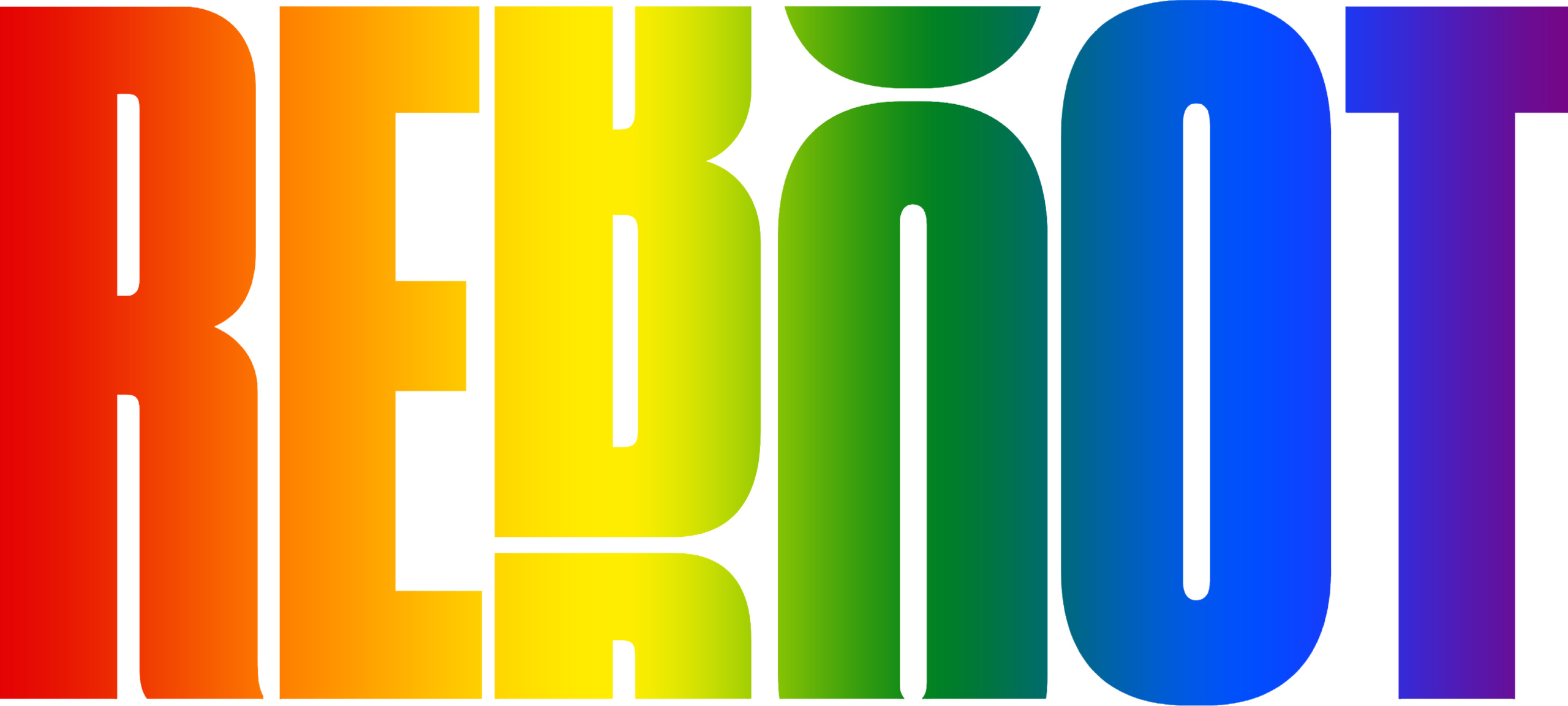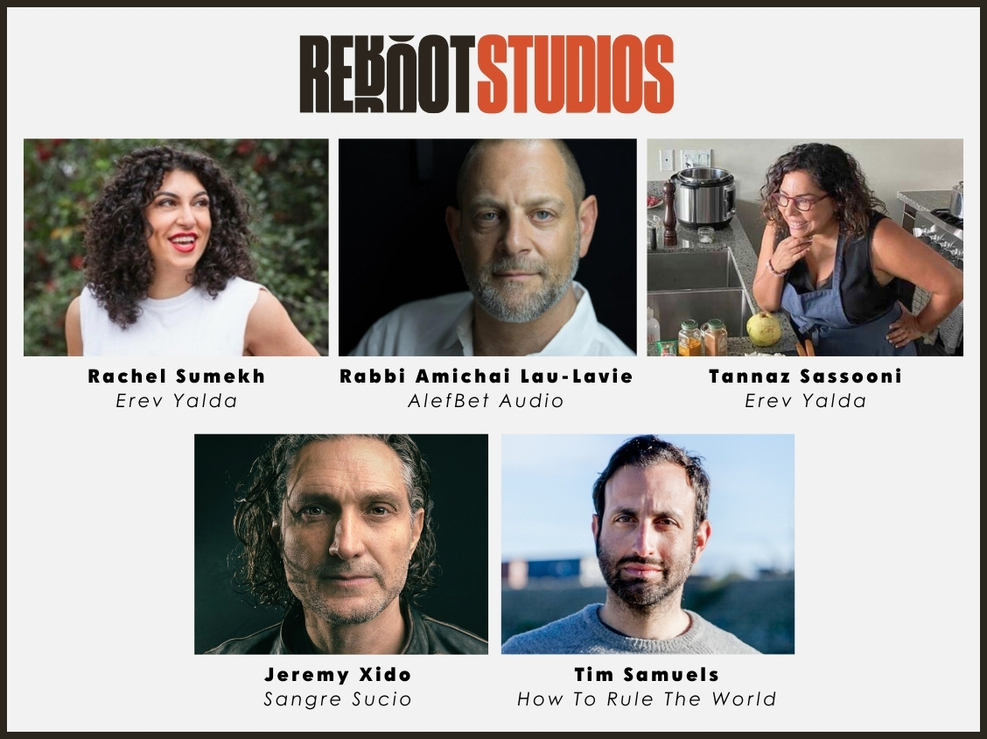What If We’re All Partially Right?

Stephanie Lepp, Reboot Network member and producer, shares why she created Faces of X, a series of short videos that integrate different perspectives on divisive social issues, like gender, abortion, and race, that seeks to transform viewpoint diversity from a weakness to a strength.
What If We’re All Partially Right?
Integrating different perspectives is a very Jew-ish impulse.
We are commanded to study the Talmud in pairs (havruta), because it is by virtue of having different perspectives that we sharpen each others’ intellect. Two ancient schools of Jewish thought — Beit Hillel and Beit Shammai — debated vigorously while staying friends, in what was ultimately a collaboration to wrestle with Jewish law.
Meanwhile, in America today, we can hardly engage with different perspectives, let alone integrate them. Our viewpoint diversity has become a source of weakness.
My new series, Faces of X, seeks to transform viewpoint diversity from a weakness to a strength.
Faces of X is a series of short videos that integrate different perspectives on divisive social issues, like gender, abortion, and race. First, each video presents the strongest arguments on each side. Then — in the triad of thesis, anti-thesis, and synthesis — each video attempts to integrate those arguments into a synthesis. Synthesis goes beyond both-sides-ism, because it considers different perspectives without assuming they’re equally valuable or relevant. Eventually, a synthesis becomes a new thesis in our evolving understanding of reality.
How might we articulate a synthesis perspective on capitalism? Let’s take a look. Liv Boeree — game theory expert and host of the Win-Win podcast — stars in Faces of Capitalism:
* The key section from the synthesis is at 2:56-3:24.
“Capitalism is the most extraordinary engine of economic growth we’ve ever seen. And, its benefits have not come for free. It’s not that capitalism is evil, just partially blind. It’s great at maximizing profit, but that comes (in part) by externalizing costs. And those costs have always been high, but now they’re globally existential. Which means: it’s time to change the game.”
“And now, we increasingly can change the game, because of capabilities that capitalism enabled us to build — like for example: closed-loop production systems, and platforms for decentralized coordination.”
“In other words, capitalism has brought us to a terrifying and miraculous point at which: humanity must change, and is newly able to change.”
The point is not that capitalism has upsides and downsides, which would be akin to both-sides-ism. The point is that capitalism’s downsides are bringing us to the brink of self-destruction, but its upsides are what’s enabling humanity to move on.
Similarly, how might we articulate a synthesis perspective on gender? Faces of Gender stars Buck Angel — speaker, entrepreneur, and sex educator who underwent one of the first FTM transitions. For decades, Angel has been at the center of the most hotly debated aspects of trans identity and its relationship to biological sex. And in that time, he’s been canceled by the progressive young trans community for questioning youth medical transition and highlighting de-transitioners.
In Faces of Gender, Angel acknowledges that he has been harsh, but because he cares about the safety of trans youth. His words attempt to integrate progressive insights into a synthesis view:
The key section from the synthesis is at 4:21-4:44:
“I think we’d all love for everyone to feel comfortable in their bodies. But the truth is: no one feels comfortable 100% of the time – especially not teenagers. There will always be people for whom gender transition is the right path. And — to the extent that we create a culture where more people feel more comfortable in whatever body they inhabit — that path will be chosen with greater confidence.”
The point is not that gender transition is not the right path for everyone, which is obvious to the point of unhelpful. It’s that we must create conditions where the choice to transition is influenced less by profit-driven media and healthcare, and more by people’s sovereignty and self-dignity.
The first release includes capitalism, gender, abortion, and race. But the potential pipeline is infinite. You can imagine Faces of Guns, Faces of Feminism, and Faces of Artificial Intelligence.
A synthesis perspective can give us a more holistic view of reality. And, like anything, synthesis can be weaponized.
Some perspectives are inherently un-integrate-able. “Abortion never” and “abortion always” don’t play well with other perspectives. Other perspectives are morally unwelcome. A meaningful synthesis on race isn’t between anti-racism and racism, but between the anti-racism proposed by Ibram X. Kendi and the color-blindness proposed by Coleman Hughes. We must be discerning about which perspectives we’re integrating, and how we frame the sides of the debate.
Ultimately, it’s unlikely that one side is entirely right. (That’s tribalism.) It’s also unlikely that all sides are equally right. (That’s both-sides-ism.) It’s more likely that most of us are partially right, but some of us are more right than others. That doesn’t make for a great tagline, but it avoids the pitfalls of tribalism and both-sides-ism in pursuit of a more comprehensive view. Our view will always be partial, and we can always strive to see more faces of reality.
It is said that the root cause of our interrelated crises is: our inability to see reality as a whole. It’s our inability to see that our department stores are stocked amazingly…due to sweatshop labor and polluted air, and that the values of choice and life…give each other meaning. In its own tiny way, Faces of X seeks to cultivate our capacity to perceive the wholeness of reality.
Paraphrasing Albert Einstein, “It’s an optical delusion of consciousness to believe there are separate things. There’s one whole that we call ‘Universe,’ and our task is to develop our capacity to perceive it.”
The next time you’re arguing with someone about some hot political issue, channel the spirit of havruta. Under what circumstances is what the other person is saying true? What if your views are not completely clashing, but somehow complementary? How might you integrate your views to create a bigger picture?
Watch the Faces of X series, and share it with someone you’d love to find synthesis with: www.facesofx.org
Stephanie Lepp is a producer and storyteller. She’s the former executive producer at the Center for Humane Technology, the organization at the heart of the Netflix documentary, The Social Dilemma. Today, she leads Synthesis Media, an independent production studio devoted to accelerating the next enlightenment. Find her @stephlepp.




